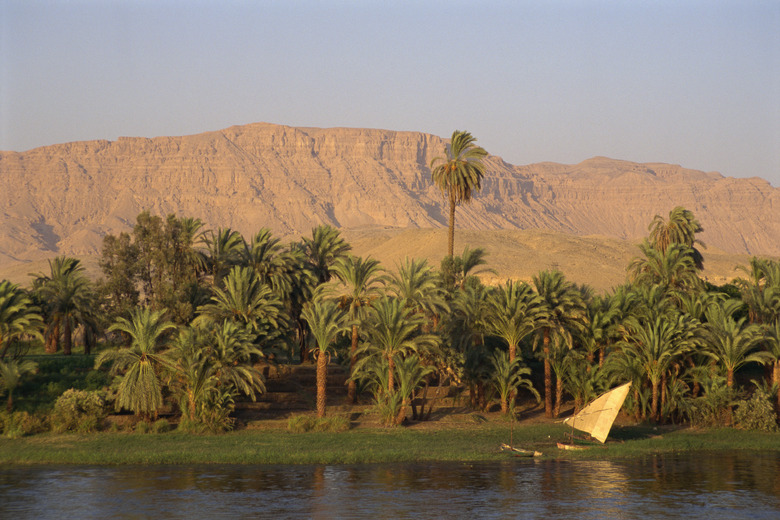The Importance Of The Red Sea In Ancient Egypt
The Red Sea is an inlet of the Indian Ocean that forms a natural border between Egypt and the Arabian Peninsula. It is entirely made of salt water. No natural rivers infuse it with fresh water, making it one of the most saline bodies of water in the world. The Red Sea played a crucial role in shaping life in ancient Egypt.
Transportation
Transportation
Land transportation was extremely difficult in ancient times, so civilizations with direct access to waterways held a major strategical advantage over those without. Access to water helped facilitate the trade of goods, technology and cultural ideas. The Red Sea provided Egypt with access to Africa and the Far East. Around 595 B.C., a canal was dug to connect the Nile River to the Red Sea. The connecting canal was large enough for two ships to pass through it at once. This canal allowed for the transport of grain, cattle, spices, people and artisan goods.
Sustenance
Sustenance
Although the ancient Egyptians utilized rudimentary irrigation systems, their survival was dependent on their proximity to water. Every irrigation system developed in ancient Egypt required the ability to divert water from a large body toward smaller collection systems. The close proximity of the Red Sea and the Nile to Egypt's population centers meant that the ancient Egyptians were not reliant on fickle season for their survival. The Nile provided fresh water for the growing of crops, while the Red Sea provided salt water for fishing. The combination of the two allowed the Egyptians to have healthy diets year round.
Cultural Exchange
Cultural Exchange
The Red Sea provided the ancient Egyptians with transportation to Africa and the Far East, but trade goods were not the only things that were exchanged across the waterway. As people came in contact with each other, cultural ideas were exchanged. Egyptian headdresses became popular in Africa, while African styles of pottery began to replace traditional styles in Egypt. Egyptian mythology also began to spread around the world. The Kushites began to practice many Egyptian burial rituals.
Stability
Stability
One of the reasons that ancient Egyptian civilization flourished was the stability provided by their specific geographical location. The Nile River's predictable flood cycles allowed for the development of dependable agricultural systems. The surrounding deserts made invasion difficult, and the Red Sea allowed for controlled interaction with other cultures. Without the access to the Red Sea, Egypt would have been isolated. Isolation would have hampered the development of the Egyptian technology and style that have captivated curious scholars for centuries.
Cite This Article
MLA
, Alexandra Corbella. "The Importance Of The Red Sea In Ancient Egypt" sciencing.com, https://www.sciencing.com/importance-red-sea-ancient-egypt-5253/. 24 April 2017.
APA
, Alexandra Corbella. (2017, April 24). The Importance Of The Red Sea In Ancient Egypt. sciencing.com. Retrieved from https://www.sciencing.com/importance-red-sea-ancient-egypt-5253/
Chicago
, Alexandra Corbella. The Importance Of The Red Sea In Ancient Egypt last modified March 24, 2022. https://www.sciencing.com/importance-red-sea-ancient-egypt-5253/
